The Council of PR Firms, founded in 1998 mostly with ad/PR conglomerate funds, and still dominated by them, is using "PR Council" as its new name. This echoes PRSA sticking with its failed APR program.
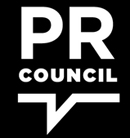 We had suggested names like American Communications Counselors and Assn. of American Communications Firms when the subject came up a year ago. Most major professions use American as the first word in their names including the American Bar Assn., American Medical Assn. and American Institute of CPAs.
We had suggested names like American Communications Counselors and Assn. of American Communications Firms when the subject came up a year ago. Most major professions use American as the first word in their names including the American Bar Assn., American Medical Assn. and American Institute of CPAs.
The Council's first name was American Assn. of PR Firms. Only eight of the 103 current members use "PR" in their names, down from 13 a year ago. None of the top 15 firms in the O'Dwyer rankings use PR and only six in the top 50 do so.
Since about a dozen specific practice areas have sprung up at firms in the past 20 years such as healthcare, tech, financial, foods/beverages, beauty/fashion, etc., other names might be Targeted Marketing Council or Council of Targeted Marketers. PR is seen by many members as too limiting.
One solution might be just using initials. The American Assn. of Advertising Agencies became the "4A's" years ago to escape use of advertising. AARP was previously the American Assn. of Retired People ("retired" being the offending word). PR, however, could not be in the initials.
Firms with special practices know the distribution channels, leading competitors, industry problems and challenges, trade press, relevant social media, the legislative climate, and other aspects of the specialty.
The O'Dwyer Co. has tracked the emergence of such specialties since 1992, currently providing nearly 600 rankings in 12 categories. Clients are able to shop for the specialists they need among the thousands of PR firms offering services. They can see year-to-year which practices are growing
Talking about PR in general is like talking about sports in general. Only a few generalizations are possible. Individual sports have to be examined on their own.
CPRF Thought "Long" about Ditching PR
 Joseph |
Jim Joseph, North America president of Cohn & Wolfe, said a CPRF committee thought "for a long time" about taking PR out of the name. What riles us is that Joseph said PR is about "engagement" when we find PR people are very choosy about whom they "engage" with.
Calls and emails Oct. 24 to Joseph, 2015 Council chair Christopher Graves of Ogilvy PR, and Ron Cappello of the Infinia Group, consultants on the name change, were not returned. So much for "engagement."
Middleberg Says Ditch PR
One of those urging the Council to drop PR is founding member Don Middleberg, who quit two years ago.
His Oct. 22 blog titled "PR Council's Missed Opportunity," commented on the Oct. 21 Stuart Elliott column in the New York Times that described the Council's "soul searching" about its name.
Middleberg said he has spoken to his peers "countless times" about ditching PR to no avail.
The Council, he says, fails to realize that "social media is now driving the bus and the PR agency model is becoming more and more outdated and broken."
Dezenhall Sees Power of "Little Guy"
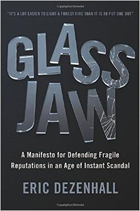 Washington, D.C. counselor Eric Dezenhall, who has authored Glass Jaw (meaning giant companies that can't take a punch) says that the internet has made individual consumers "more powerful than ever—the "`little guys' can injure the `big guys' who don't have the will to fight little guys and don't even have the tools to do it."
Washington, D.C. counselor Eric Dezenhall, who has authored Glass Jaw (meaning giant companies that can't take a punch) says that the internet has made individual consumers "more powerful than ever—the "`little guys' can injure the `big guys' who don't have the will to fight little guys and don't even have the tools to do it."
The rabble [Ed. note: this is our term] is more coordinated and powerful than ever before, he feels.
Dezenhall describes numerous crises where "PR" has not been able to help because of the underlying facts (Penn State and child molesting charges; Tiger Woods crashing his car; BP's oil spill; Carnival Cruise Lines wreck, etc.).
Most Orgs Don't Have Crises
While such crises take up a lot of air time and ink, most companies are concerned with selling their products and services and have not gotten themselves into any hot water. There is little that PR can do in quite a few crises, Dezenhall notes.
The expertise that firms have developed in targeted markets is what should be stressed. That is what clients are buying.
The term "PR" is too often associated with spin and lying. The first few words of the Oct. 21 Elliott column are "Spin specialists are hoping to do some spinning on their own behalf…"
The former "PR Seminar," the annual meeting of 150 bluechip corporate PR heads and execs of 20 major agencies, took PR out of its name in 2007. It inducted 35 new members in 2014—none of them having "PR" in their titles.
PR on the corporate side has become identified with stonewalling and evasion. David Carr of NYT has written that executives "hide behind a wall of PR operatives." Variety's Peter Bart says "evasion overrules promotion" for publicists who have become "locked in their bunkers." Gene Weingarten of the Washington Post says he is bombarded by PR people who can't answer his questions.
PR Is Dead, Say Voices from Abroad
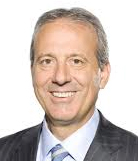 Graves |
Graves, Joseph, Cappello and other Council leaders should pay attention to what is being said about PR in other nations—which have more perspective on the situation.
"PR Is Dead" is the headline on a five-page treatise in the January 2013 bulletin of the Centre for Corporate Public Affairs, Melbourne, a group of senior executives similar to the Arthur W. Page Society.
Author Wayne Burns, formerly with Hill+Knowlton, said PR is too identified with marketing and that corporate goals are more often obtained via legislatures and the political process. PR "is dead as a strategic management function in large organizations, its original intent and utility surviving only on the tactical fringes of marketing," he wrote.
Agreeing with Burns is Robert Phillips, longtime executive for Edelman/U.K., who is authoring a book called Trust Me, PR Is Dead.
Phillips until December 2012 was president and CEO, Europe, Middle East & Africa of Edelman, supervising 1,200 people in 19 office in 14 markets.
Taking Edward Bernays as his nemesis, saying he fathered "a global industry of business and political propaganda," Phillips says the new order belongs to the public which now has its hands on the tools of communication.
"Communications," he writes, "must shed itself of an obsession with manicured message-management and control. It must place radical honesty, radical transparency and actions, not words, at its core. It is time to put a discredited function, PR, out of its misery…arguing for a re-branding or evolution of PR will not do."
Council, PRSA Ignore Research
The PR Council's offices are two blocks from the O'Dwyer offices on Madison ave. but there is no interaction between the two. We have lots of materials on the major PR organizations and numerous articles on how the public views PR including the $150,000 study published in 1999 by the PR Society and Rockefeller Foundations. It ranked "PR specialist" No. 43 on a list of 45 credible sources of info.
Laura Freebairn-Smith of Hamden, Conn., who interviewed 750 members and conducted other research, told the 2013 Assembly that its APR program is invalid because it is self-administered and that "Employers are not using it as a hiring guide."
Other criticisms were that the "maintenance requirements are not stringent enough"; the UAB website is "dated and does not convey an image of a robust, successful credential," and "concerns of ethical violations" are not addressed.
Although Freebairn-Smith's office is only about 1.5 hours by train from ours, and we have research on APR dating back to 1968, she refused to visit us or even talk to us on the telephone. She told us not to email materials to her more than once a week.
Council Tried to Take over Rankings
The Council, founded not coincidentally in the same year as PR Week/U.S., had as an initial goal taking over the rankings of PR firms that were being done by the O'Dwyer Co., The Holmes Report and PR Week/U.S.
The 125 Council members in 1999, including the PR operations owned by the conglomerates, were told by Council president Jack Bergen to supply ranking figures only to the Council which would then give them to media.
It used a 5,000 mailing list supplied to it by PR Week, whose debut in the U.S. had been helped by the PR Society. COO Ray Gaulke had gone to London twice to urge Haymarket to start a U.S. edition of PRW, promising use of the Society's membership lists. A Gaulke letter urged Society advertisers to advertise in PRW.
Under the Council's rules, agencies could count ad commissions up to 49% of income. Profits from graphics, printing, video and other services were allowed. Agency CEOs and CFOs were allowed to sign off on their own numbers. Neither corporate tax returns nor W-3s were collected. Account lists were not required.
The Council abandoned its quest to be the rankings arbiter in 2002 when Sarbanes-Oxley was passed, threatening heavy penalties for any public company providing misleading or false financials. The conglomerates said accounting rules in foreign countries differed from those in the U.S. and made reporting comparable figures problematical.
Wikipedia currently has no entry whatever on the Council.


 Sherrie Mazur will join the Arthur M. Blank Family Foundation as managing director, of communications on Feb. 14.
Sherrie Mazur will join the Arthur M. Blank Family Foundation as managing director, of communications on Feb. 14. 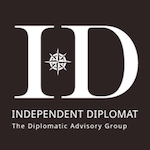 Independent Diplomat, the nonprofit that promotes democracy by organizing opposition movements and activists, has trained its sights on Venezuela.
Independent Diplomat, the nonprofit that promotes democracy by organizing opposition movements and activists, has trained its sights on Venezuela.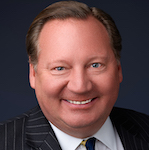 Robert Tappan has joined the International BioMetrics + Identity Assoc., the trade group for the identity technology industry.
Robert Tappan has joined the International BioMetrics + Identity Assoc., the trade group for the identity technology industry.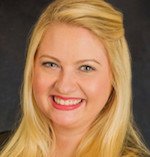 Tiffany Haverly, who was at Finsbury Glover Hering, has joined the Internet Association as director of communications.
Tiffany Haverly, who was at Finsbury Glover Hering, has joined the Internet Association as director of communications.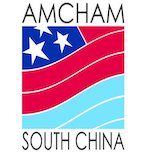 BGR Government Affairs represents the American Chamber of Commerce in South China as economic and political tensions between the two countries escalate.
BGR Government Affairs represents the American Chamber of Commerce in South China as economic and political tensions between the two countries escalate.


 Have a comment? Send it to
Have a comment? Send it to 
No comments have been submitted for this story yet.